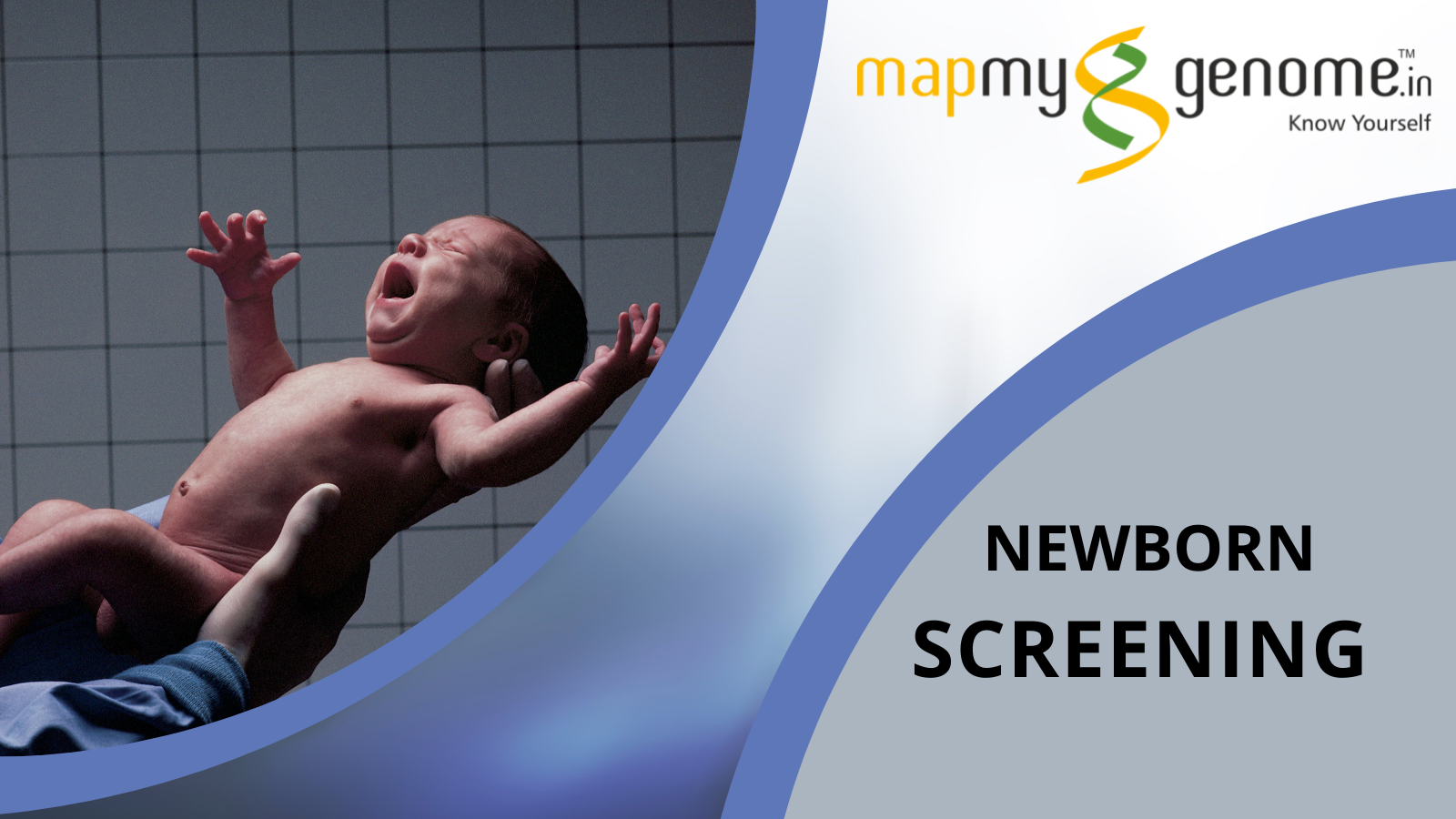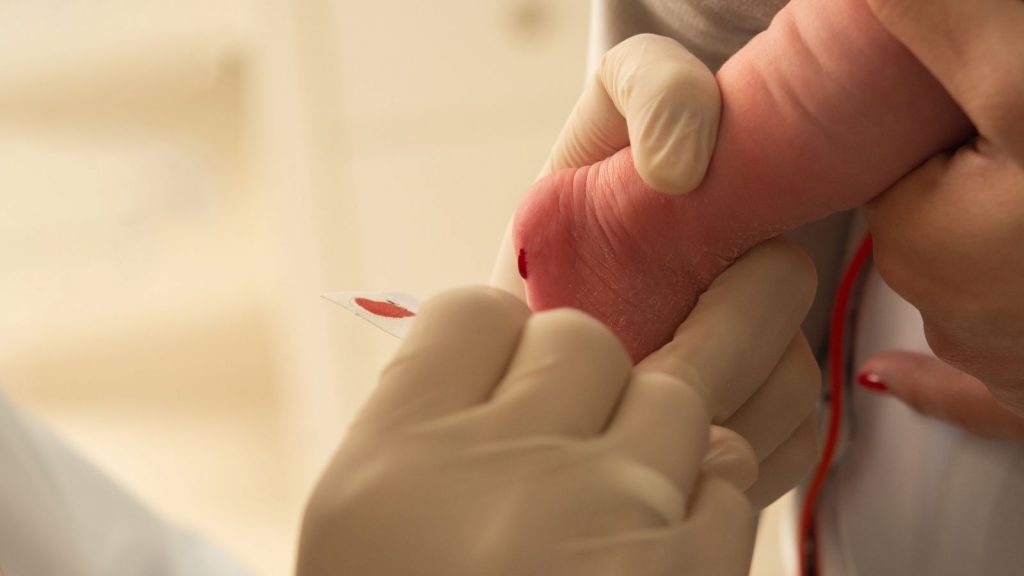
Every year, 25 million babies are born in India. An Indian study shows that less than 750,000 babies born in India in 2019 were screened for at least one disorder, i.e., < 3% of the babies born [1]. Of the 25 million babies born every year in India, 800,000 babies are born with congenital malformations, 25,000 with metabolic disorders, 350,000 with Glucose 6-Phosphate deficiency (G6PD), and 15,000 with Congenital Hypoplasia (CH). This emphasizes the need for routine newborn screening (NBS) in India. In recent times, the importance of NBS has been recognized and is slowly gaining attention in our country.
Let us understand what NBS is and why there is an urgent need to implement a country-wide screening!
Newborn screening is done for conditions that may not be detected at birth, but may cause lifelong disabilities, as children grow older. Most babies with these conditions, if identified at birth, can live a healthy life thanks to the simple and inexpensive treatments available. Early detection and intervention can help manage these conditions even before any symptoms manifest. This is why NBS must be done for every baby born. Gynaecologists and Obstetricians play a major role in creating awareness and informing parents about NBS even before their baby is born.
It is important to help parents understand the importance of NBS when they are expecting their little one.
Why is NBS important?
Inborn errors of metabolism (IEMs) are inherited conditions caused by genetic changes that hamper the body’s ability to convert food to energy. These could lead to lifelong neurological implications and in severe cases even result in the death of the newborn. With manageable outcomes and easily available treatments, NBS ensures that babies screened can be identified for conditions and managed from a very early stage.
How and when is the NBS test done?
When a baby is 24-48hr old, a healthcare professional or nursing staff will take a very small amount of blood sample from the heel of the baby, also called a heel stick. The timing here is important because if the sample is drawn before 24 hrs, the results might not be accurate. Few drops of this blood are then collected on the filter paper or the card, to create dried blood spots. As much as the blood sample is important, the other part of this card needs to be filled with appropriate information about the baby like his/her name, sex, weight, date/time of birth, date/time of heel stick collection, and date/time of first feeding.

What is tested in NBS?
The following are the few basic and primary conditions tested in NBS.
- Biotinidase Deficiency
- Congenital Adrenal Hyperplasia (CH)
- Congenital Primary Hypothyroidism (CAH)
- Glucose 6-Phosphate Deficiency (G6PD)
- Cystic Fibrosis (CF)
- Galactosemia
- Phenylketonuria (PKU)
An extensive NBS covers conditions that are associated with amino Acids, organic acids & fatty acid oxidation disorders.
What and how to expect your results?
The results of these NBS tests are sent to the healthcare provider. The health care provider then immediately informs the parents about the results. If the results pick up an elevated level for a particular condition, then these families can then be sent for genetic counselling to understand the implications of the results. However, the treatment and management are done by the baby’s treating physician. Genetic counsellors play an important role here because they help families and parents understand the condition that has been picked up and reassure the parents about their child. In some cases, where treatments are not available, further management is also explained.
Currently, there are many challenges with a routine NBS in India. It is important to conduct NBS all over India in a planned manner. Along with this, it is of utmost importance to raise awareness about what NBS is among doctors, healthcare professionals, families, and friends. For parents, it is important to understand what NBS is and how this can help your baby. Let us come together in understanding and raising awareness about a simple blood test that will ensure a newborn’s health.
Would you like to speak to a Genetic Counselor? Click here to schedule an appointment.
BabyMap Newborn Screening
BabyMap Newborn Screening (supplemental NBS) provides you and your physician with information regarding your newborn’s risks for developing genetic conditions and provides you with recommendations to keep the conditions under check. This includes:
- Pre-test Genetic Counseling
- Genetic Report
- Post-test Genetic Counseling
- Recommendations and guidelines from the genetic counselor
Learn more about BabyMap. Call 1800-102-4595 or write to info@mapmygenome.in.
Works Cited
- Mookken, T. (2020). Universal implementation of newborn screening in India. International journal of neonatal screening, 6(2), 24.
About the Author
Zainab Abbas is a Board-Certified Genetic Counselor. Graduated as an engineer in Biotechnology from Vellore Institute of Technology, she further specializes in Medical and Genetic Counselling. Having worked in the healthcare sector she is well experienced and skilled in pre-natal & ante-natal counseling, new-born screening, pediatric counseling, adult-onset, and oncology-related counseling.


